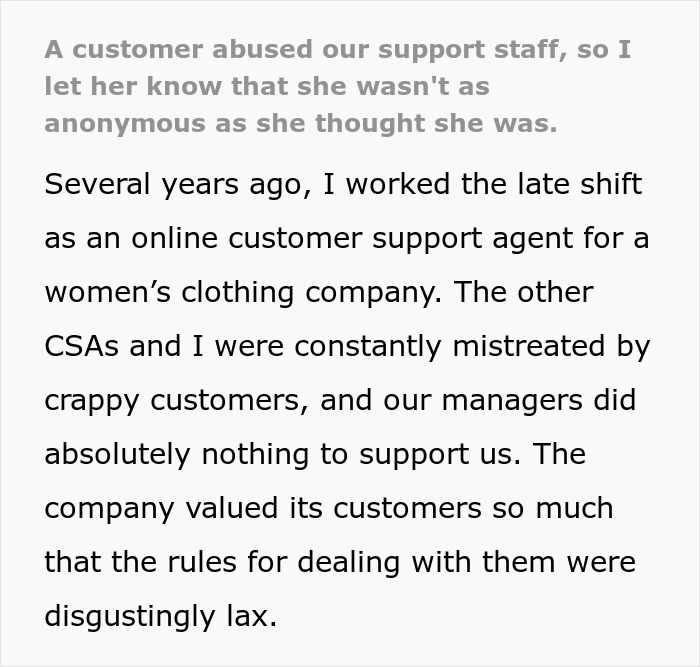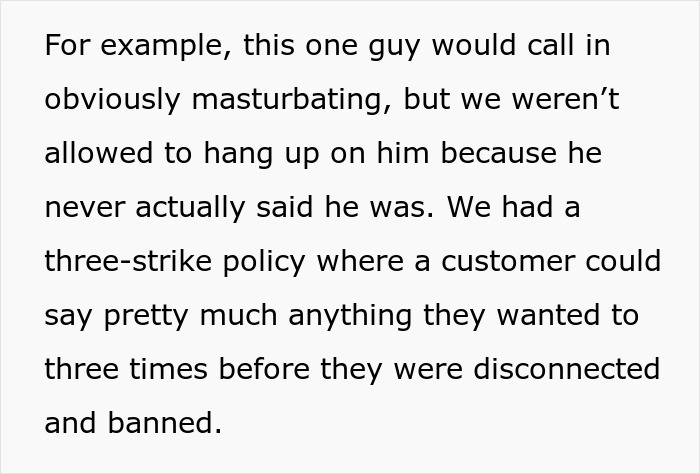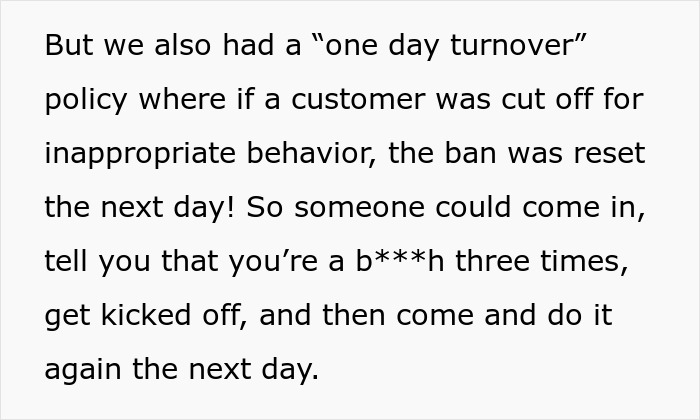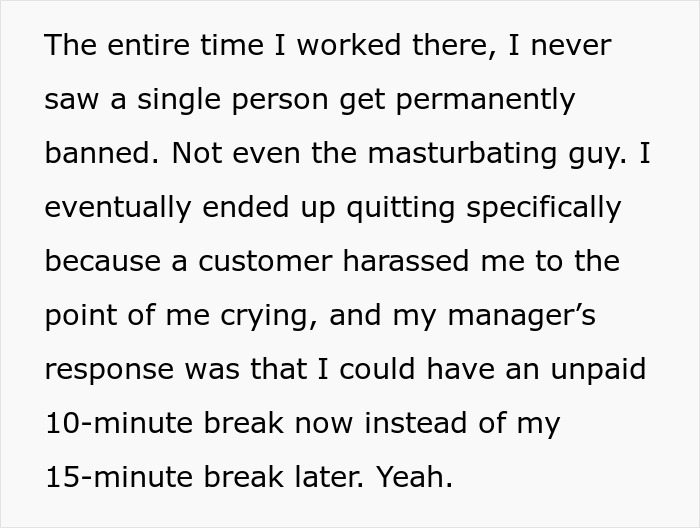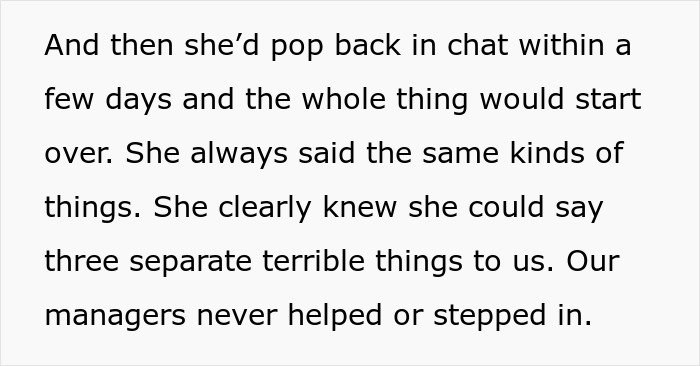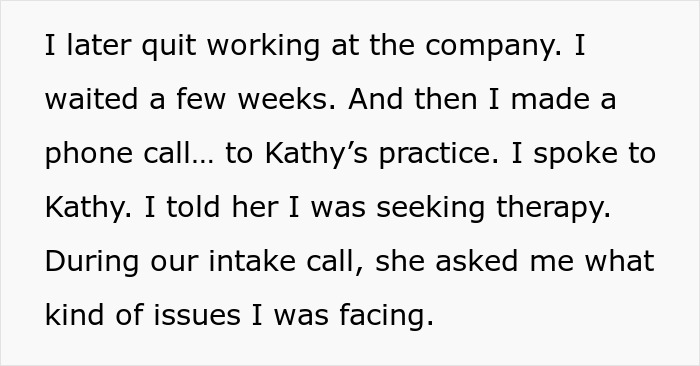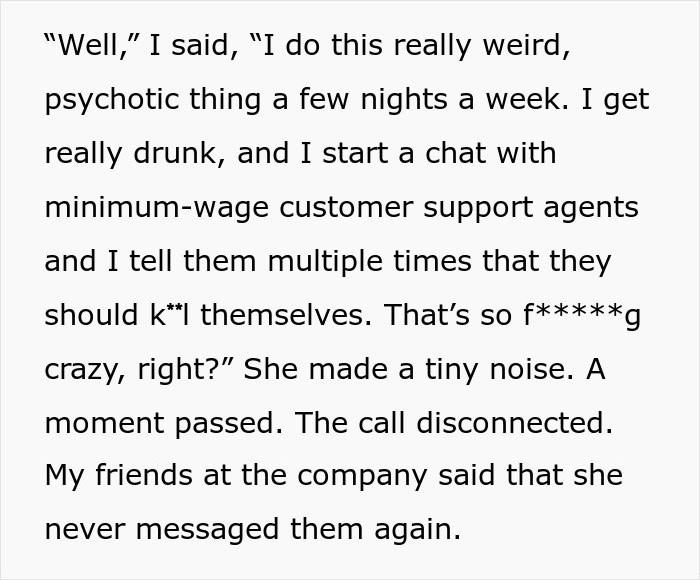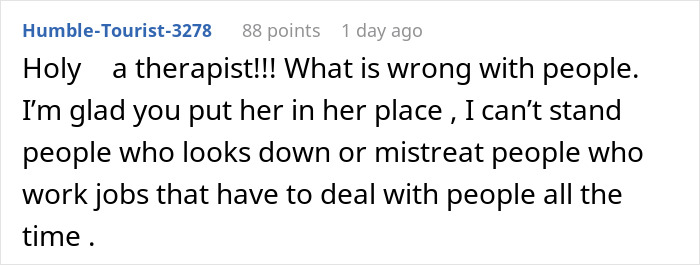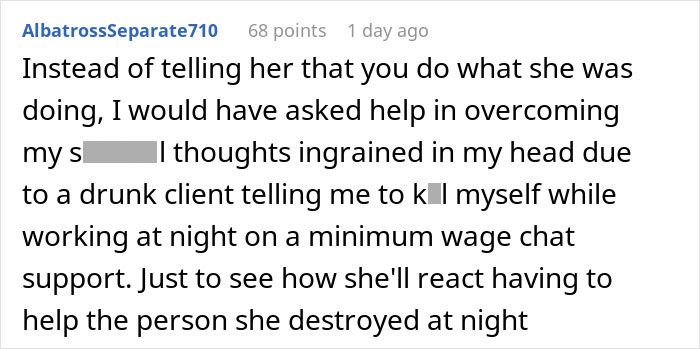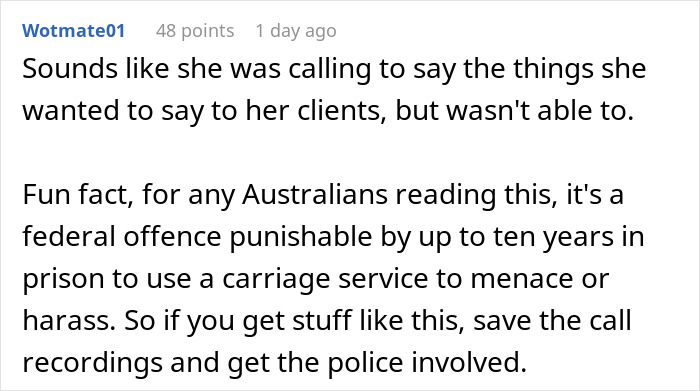A horrifying story about customer service agent abuse comes from this person. Recently, they shared a story about how a woman would randomly call the staff and insult them about their mental health. What’s worse, it turns out she was a therapist. Unable to comprehend the cruelty, the person decided to turn the tables on her and show her she wasn’t as anonymous as she might’ve thought.
Working in customer support is no easy job, as anyone who’s done it will tell you
Share icon Image credits: Yan Krukau / Pexels (not the actual photo)
One worker decided to get back at a customer who used to be abusive to the staff and let her know she was not as anonymous as she thought
Share icon Image credits: Matilda Wormwood / Pexels (not the actual photo) Share icon Share icon
Share icon Image credits: Tima Miroshnichenko / Pexels (not the actual photo)
Share icon Image credits: TheMarianaWench Share icon Image credits: Tima Miroshnichenko / Pexels (not the actual photo)
Customers abusing service staff can lead to employees developing serious mental health issues
It’s almost common knowledge that working in customer service can be straight-up hell. Any job where you have to deal with people’s complaints and demands daily can take a toll on a person. In fact, a Ringover survey in 2023 revealed that 70.6% of workers – that’s 7 in 10 – are struggling with mental health. Because many customer service support workers are facing abuse and terrible treatment every day, 84.5% say they’re looking for a new job and are planning to quit. In the same survey, workers revealed the kind of abuse they’re faced with in their line of work. They say customers swear and scream at them, threaten them with physical violence, and threaten their jobs. Interestingly, employees who work in brick-and-mortar support experience the most abuse. Those who communicate with customers by phone have reported the least amount of abusive behavior from customers. Granted, the statistics come from the complaints the workers submitted internally. So there is no way of knowing how many unreported cases of abuse there are. Share icon Image credits: Lukas / Pexels (not the actual photo)
Some think AI might be the solution to the customer abuse problem
As AI is seeping into every industry, it seems it might just be the perfect solution for customer service. An AI customer representative wouldn’t get emotional, could absorb the abuse the rude customers dish out, and deal with them in a cold-blooded and considerate manner. Customer experience specialist Sílvia C. writes that AI can help to deal with abusive customers. There are four ways an AI model could do this. Through language analysis, the model could identify abuse by flagging the keywords, phrases, or negative sentiments coming from the customer. The chatbot could also help a customer service representative to de-escalate a situation. A bot would filter out routine inquiries and alert the agent when the customer’s language starts veering into abuse. It could also give the agent suggestions on how to de-escalate the situation by giving real-time coaching. Lastly, AI could analyze the patterns and trends of abusive customer interactions. That could potentially help recognize the triggers that lead people to treat customer service workers poorly. The company could then use the data to come up with preventative measures to make sure the staff don’t have to deal with the abuse. However, this doesn’t mean there is no human element in the interactions. The author emphasizes that AI should be a tool to help customer service representatives handle their tasks better and is not a replacement for human interaction. Mathew Patterson from Help Scout is also skeptical of relying on AI to solve this problem. “The problem of customer service abuse remains for us humans to solve in the real world,” he writes. Share icon Image credits: Alena Darmel / Pexels (not the actual photo)
Companies and managers should protect their customer service representatives from abuse
Customer service trainer Monique Richardson writes that the best thing businesses can do to protect their workers from customer abuse is to equip them with the skills and tools to deal with difficult customers. She claims that companies should teach employees to handle challenging situations by “building rapport, fostering cooperation, and using language that encourages collaboration.” Customer service expert Matthew Patterson also has some suggestions for managers on how to better protect their workers. He writes that the first step is to admit that customers being abusive is a reality and not ignore it. Then, he claims it’s important to clearly define what constitutes abusive behavior. What to one person seems like a personal attack might simply be an upset customer expressing themselves in a more heated manner. Businesses should make abuse protocols official. Longtime employees and new hires should go through training programs and learn these protocols. Also, employees’ personal information should be properly protected. Workers should be able to change or redact any information about themselves that is openly accessible. Customer service representatives should also feel their management’s support at all times. “Back up your team during and after incidents,” Patterson writes. “Make sure your team members know you have their backs whenever it is needed.” And, finally, a customer’s abusive behavior should have repercussions. The failure of the management in this story is that the higher-ups refused to do anything. Patterson suggests something termed “firing your customers.” Nobody should accept abuse as part of their job, and when a customer crosses that line, they should be dealt with accordingly.
People applauded the worker’s way of dealing with the woman and were appalled at how this person could work as a therapist
Share icon
Anyone can write on Bored Panda. Start writing! Follow Bored Panda on Google News! Follow us on Flipboard.com/@boredpanda!

